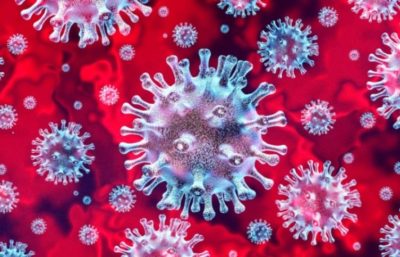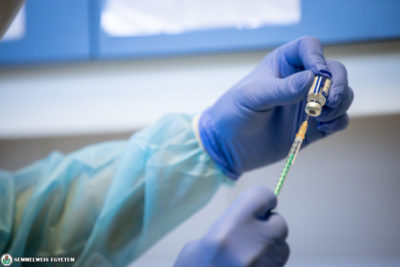The administration of the second dose of the COVID-19 vaccine starts this week at Semmelweis University for those who received the first shot at the institution on 26 December, 2020.
“Medical staff of Semmelweis University have administered the COVID-19 vaccination to 8818 people by 10 January, 2021, including more than 4000 Semmelweis citizens.”, said Dr. Béla Merkely, rector.
At the university, COVID-19 vaccine jabs are given to employees of hospitals, health care providers (for example general practitioners, pediatricians) as it is ordered by the government, as well as to employees of the National Ambulance Service and the residents of retirement homes. In addition, to improve the epidemiological situation, the following Semmelweis citizens involved in patient care can receive the COVID-19 vaccination based on the policy of the National Public Health Center:
- The medical health care personnel of the Clinical Centre’s organizational units.
- Medical students participating in clinical education (Faculty of Medicine: 4th-6th Year; Faculty of Dentistry: 3rd-5th Year; Faculty of Pharmaceutical Sciences: 4th-5th Year; Faculty of Health Sciences: 3rd-4th Year; András Pető Faculty: students participating in practical training; Faculty of Health and Public Administration: students participating in practical training).
- Medical students participating in health care education (including PhD students), who voluntarily take part in patient care (screening, nursing aid responsibilities, working at vaccination centers).
“Provided that the vaccination programme of the National Public Health Care is extended, and a necessary amount of the vaccine is available, the vaccination of those Semmelweis citizens, who do not belong to any of the above mentioned categories, can be immediately started. In the meantime, people are requested to register online on the web page of vakcinainfo.gov.hu.”, the rector highlighted.
Since the vaccine called Comirnaty is a liposome-based mRNA delivery system and does not contain active or attenuated virus, it does not cause COVID-19 infection. At the same time, based on earlier experiences, it can be generally stated that vaccines provide longer-term protection as opposed to going through the infection.
Eszter Kovács
Featured image (illustration): Attila Kovács – Semmelweis University
Translation: Katalin Illés-Romhányi


